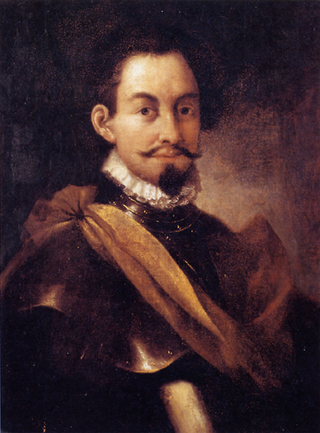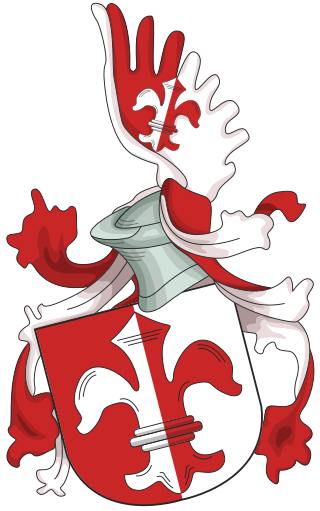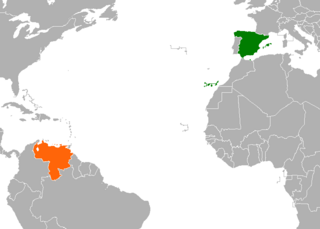
German attempts at the colonization of the Americas consisted of German Venezuela, St. Thomas and Crab Island in the 16th and 17th centuries.

Coro is the capital of Falcón State and the second oldest city in Venezuela. It was founded on July 26, 1527, by Juan de Ampíes as Santa Ana de Coro. It was historically known as Neu-Augsburg by the German Welsers, and Coro by the Spanish colonizers and Venezuelans, the city and buildings were built during the Spanish Empire. It is established at the south of the Paraguaná Peninsula in a coastal plain, flanked by the Médanos de Coro National Park to the north and the Sierra de Coro to the south, at a few kilometers from its port in the Caribbean Sea at a point equidistant between the Ensenada de La Vela and Golfete de Coro.

Lara State is one of the 23 states of Venezuela. Lara is located in the Central-Western Region, Venezuela. The state capital is Barquisimeto.

Nikolaus Federmann was a German adventurer and conquistador in what is modern-day Venezuela and Colombia. He is a significant figure in the history of Klein-Venedig (1528–1546), the concession of Venezuela Province that Charles I of Spain granted to the Welser banking family and the foundation of Santafe de Bogotá.

Philipp von Hutten was a German adventurer and an early European explorer and conquistador of Venezuela. He is a significant figure in the history of Klein-Venedig, the concession of Venezuela Province to the Welser banking family by Charles V, Holy Roman Emperor and King of Spain.

Welser was a German banking and merchant family, originally a patrician family based in Augsburg and Nuremberg, that rose to great prominence in international high finance in the 16th century as bankers to the Habsburgs and financiers of Charles V, Holy Roman Emperor. Along with the Fugger family, the Welser family controlled large sectors of the European economy, and accumulated enormous wealth through trade and the German colonization of the Americas, including slave trade. The family received colonial rights of the Province of Venezuela from Charles V, who was also King of Spain, in 1528, becoming owners and rulers of the South American colony of Klein-Venedig, but were deprived of their rule in 1546. Philippine Welser (1527–1580), famed for both her learning and her beauty, was married to Archduke Ferdinand, Emperor Ferdinand I's son.

Georg von Speyer was a German conquistador in New Granada and Venezuela. His birth name was Georg Hohermuth but he chose to call himself after his place of birth. He is sometimes referred to as Jorge de Espira, his name in Spanish. He is a significant figure in the history of Klein-Venedig, the concession of Venezuela Province to the Welser banking family by Charles I of Spain.

Ambrosius Ehinger, also Dalfinger, Thalfinger, was a German conquistador and the first governor of the Welser concession, also known as “Little Venice” (Klein-Venedig), in northern South America, now Venezuela.

El Tocuyo is a fertile valley and city in west-central Venezuela at 622 m (2,041 ft) elevation. It is located in south-central Lara State about 60 km southwest of Barquisimeto. The town of El Tocuyo was founded by Juan de Carvajal in 1545 on the banks of the Tocuyo River and it was the administrative capital of Venezuela Province from 1546 to 1548. Its original name was Nuestra Señora de la Pura y Limpia Concepción del Tocuyo. El Tocuyo is now just the municipal seat of Morán. Its population is 41,327 (2001).

Klein-Venedig or Welserland was the most significant territory of the German colonization of the Americas, from 1528 to 1546, in which the Welser banking and patrician family of the Free Imperial Cities of Augsburg and Nuremberg obtained colonial rights in the Province of Venezuela in return for debts owed by the Holy Roman Emperor Charles V, who was also King of Spain. In 1528, Charles V issued a charter by which the House of Welser possessed the rights to explore, rule and colonize the area, also with the motivation of searching for the legendary golden city of El Dorado. The venture was led at first by Ambrosius Ehinger, who founded Maracaibo in 1529. After the deaths of Ehinger (1533) and then his successor Georg von Speyer (1540), Philipp von Hutten continued exploration in the interior, and in his absence from the capital of the province, the crown of Spain claimed the right to appoint the governor. On Hutten's return to the capital, Santa Ana de Coro, in 1546, the Spanish governor Juan de Carvajal had von Hutten and Bartholomeus VI. Welser executed. King Charles V revoked Welser's charter.

Prince Bartholomeus Welser was a German banker. In 1528 he signed an agreement with Charles V, emperor of the Holy Roman Empire, granting a concession in Venezuela Province, which became Klein-Venedig until the concession was revoked in 1546.

The Morán Municipality is one of the nine municipalities (municipios) that makes up the Venezuelan state of Lara and, according to a 2007 population estimate by the National Institute of Statistics of Venezuela, the municipality has a population of 128,674. The town of El Tocuyo is the shire town of the Morán Municipality.

The Venezuela Province was a province of the Spanish Empire, of Gran Colombia (1824–1830) and later of Venezuela, apart from an interlude (1528–1546) when it was contracted as a concession by the King of Spain to the German Welser banking family, as Klein-Venedig.
German Venezuelans are Venezuelan citizens who descend from Germans or German people with Venezuelan citizenship. Most of them live in Caracas, Maracaibo, Valencia, Colonia agrícola de Turén, El Jarillo, and Colonia Tovar where a small-reduced and decreasing minority of people speak the Colonia Tovar dialect, a German-derived dialect from their ancestry, and the Spanish language.
Spanish expeditions led by Columbus and Alonso de Ojeda reached the coast of present-day Venezuela in 1498 and 1499. The first colonial exploitation was of the pearl oysters of the "Pearl Islands". Spain established its first permanent South American settlement in the present-day city of Cumaná in 1502, and in 1577 Caracas became the capital of the Province of Venezuela. There was also for a few years a German colony at Klein-Venedig.
Bartholomeus VI. Welser was a member of the Welser banking family, which had acquired the colonial rights to Venezuela Province in 1528 and created Klein-Venedig. He was the son of Bartholomeus V. Welser.

Spain–Venezuelan relations are the bilateral relations between the Kingdom of Spain and the Bolivarian Republic of Venezuela. Both nations are members of the Association of Spanish Language Academies and the Organization of Ibero-American States.
Basque Venezuelans are citizens of Venezuela who are of Basque ancestry.

La Vela de Coro is the port of Coro, Venezuela. Coro and its port form a conurbation, although Coro is in the municipality of Miranda and La Vela is in a separate municipality, Colina. The twin settlements were founded by the Spanish in the 16th century.

Germany–Venezuela relations have a long tradition and were officially established in 1871. During Nicolás Maduro's tenure, relations have deteriorated and in 2019 Venezuela declared the German Ambassador Daniel Kriener a persona non grata; however, he was able to return to the country soon after. Close relations with Venezuela continue to be maintained by parts of the German left and the political party Die Linke.
















